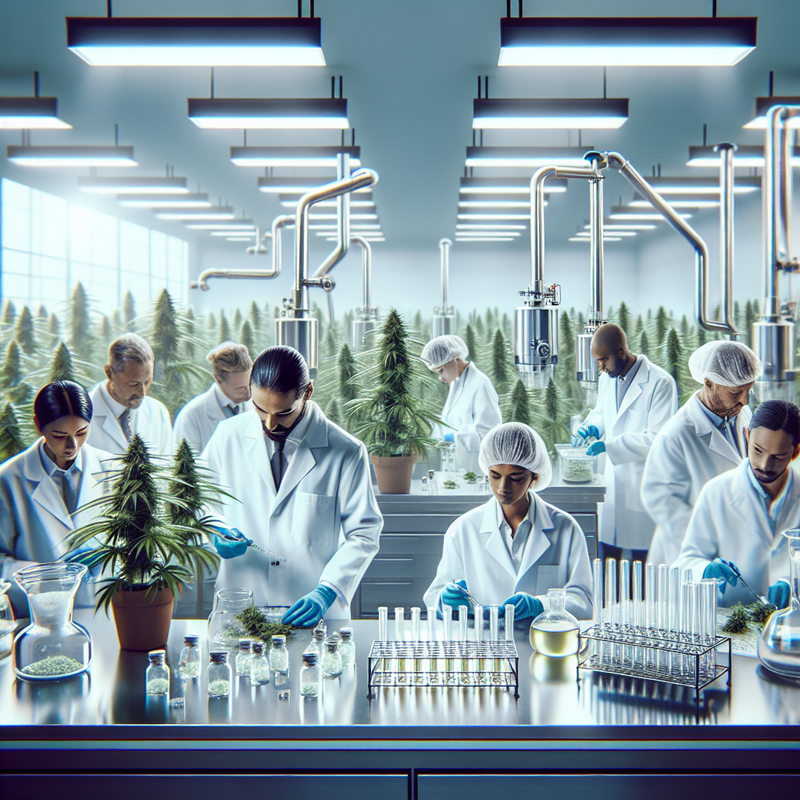
In the rapidly growing world of CBD, understanding the manufacturing process is essential for anyone interested in trying or purchasing CBD oil. At our recognized online store, we prioritize transparency and quality, ensuring that our customers know exactly what they are consuming. In this article, we take you behind the scenes to explore how CBD oils are made.
1. Sourcing Quality Hemp
The journey of CBD oil begins with sourcing the right hemp. High-quality CBD oil comes from hemp strains specifically bred to contain high levels of CBD and minimal levels of THC. Hemp is a versatile plant that requires a care procedure to maintain its integrity. Organic farming practices are often employed to ensure that the hemp is free from pesticides and harmful chemicals, which can affect the purity of the final product.
2. Harvesting the Hemp
Once the hemp plants reach maturity, they need to be harvested. The timing of harvesting is crucial since the potency of CBD can diminish after a plant has peaked. Typically, farmers will harvest the hemp plants when the flowers are in full bloom, as this is when the concentration of cannabinoids, including CBD, is at its highest. After harvesting, the plants are carefully processed, ensuring that the valuable parts are preserved.
3. Extraction Methods
The next step in the production of CBD oil is extraction. There are several methods to extract CBD from the hemp plant, with some of the most popular being:
- CO2 Extraction: This method uses carbon dioxide under high pressure to remove CBD from the plant material without leaving behind harmful residues. This results in a purer and more concentrated oil.
- Steam Distillation: Utilizing steam to extract essential oils, this method can produce high-quality extracts but can sometimes change the characteristics of the oil.
- Solvent Extraction: While this method can be effective, it requires careful handling as it uses solvents that can leave residual chemicals in the final product.
At our store, we celebrate CO2 extraction for its efficacy and safety, ensuring that our customers receive the highest quality CBD oil.
4. Refinement and Quality Control
After extraction, the raw CBD oil may need refining to enhance its potency and purity. Techniques such as winterization and decarboxylation are commonly used.
- Winterization: This process removes waxes, fats, and chlorophyll from the oil to improve its appearance and texture.
- Decarboxylation: This step involves heating the oil to activate the cannabinoids, enhancing their effectiveness.
Quality control is crucial at every stage. Rigorous testing is conducted to ensure the absence of contaminants and the correct concentration of cannabinoids. Reputable brands will share lab results with consumers to verify their claims.
5. Formulation and Packaging
Once the CBD oil has been refined, it can be formulated into various products, such as tinctures, capsules, edibles, or even topical applications. Each product will have its own specific formulation based on the intended use.
Finally, the CBD oil is carefully packaged to protect its integrity while providing clear labeling with necessary information such as dosage, ingredients, and batch numbers. This transparency helps consumers make informed choices about their CBD products.
Understanding how CBD oil is made is key to selecting high-quality products. At our online store, we are committed to providing you with the best CBD offerings, from oil to pre-rolls, ensuring that our customers have access to safe, effective, and lab-tested products. Don’t wait any longer! Visit us today to discover our collection and experience the benefits of CBD for yourself!
20% OFF Discount Code: TRYCBD20
$20.00 Minimum Order - Free Shipping

